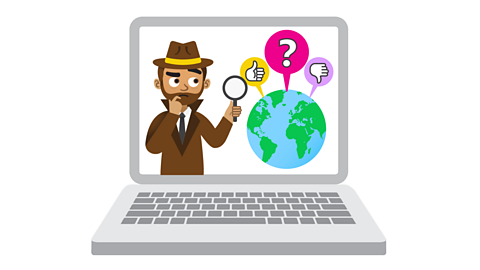What is your online data?

Data is another word for information. That means your online data is information and details stored onlineConnected to the internet. about you.
Everything you do online creates data about you that gets stored and collected.
When you comment on a social mediaOnline platforms, apps and communication tools used to connect people together in groups. post, watch a video, play a game or share a picture, you leave an online trail.

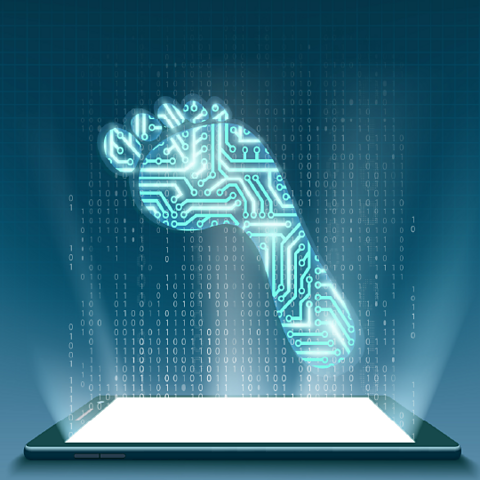
When you sign up for an online user account you give some of your personal details.
web browserA type of program on a digital device that we use to view and navigate websites. store a record of what you searched for by using a small file called a cookieA small program created by a website to remember details about you when you visit websites and online platforms..
Every time you scroll through a list of short videos and stop to watch for a bit longer, the platformAn online space, company or website that is used to publish online content. will make a record of the video you watched.
We call this trail your digital footprintThe trail of information left behind by a user as they visit websites and online platforms. and it becomes a record of your online explorations, preferences, habits and behaviour.
Creating your online reputation
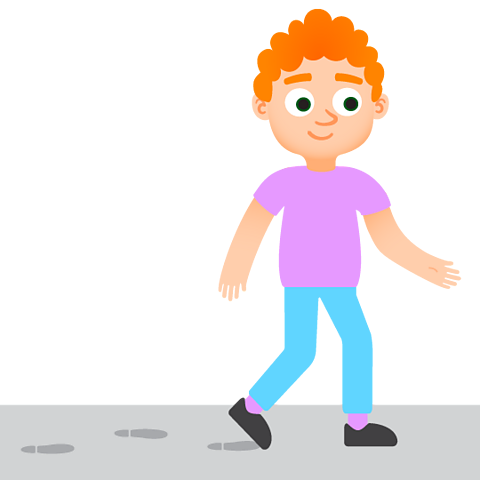
Digital footprints are almost impossible to get rid of once they are made.
Everything you post online will leave a mark, even if you later delete it. You can't pick and choose what gets saved - if you make one mean comment, it is saved alongside all the other nicer ones.
This means that you are creating an online reputation as you go and it might not always match your offlineNot connected to the Internet. Often used to mean activities that don’t happen on a digital device. behaviour.
This can have consequences in the future - like when you're going for a job or making new friends. People can access information about what you've done in the past, both good and bad.
So before you press that share button, or make that comment, think carefully about your online reputation.

Paying for media content
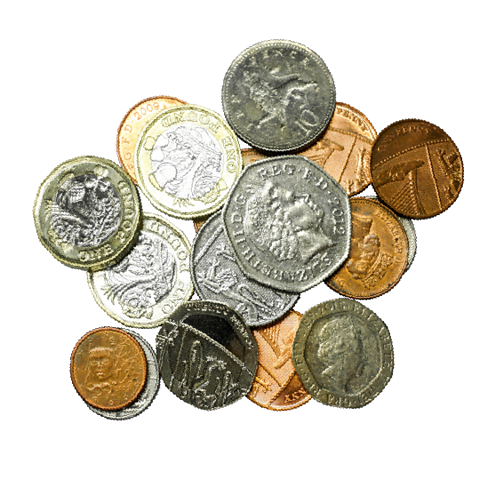
Usually, when we want to take part in an event, or enjoy media content we have to pay for it.
If we want to watch a film on TV we have to pay for a streaming service, or a TV Licence, or watch adverts.
If we want to see a live sports event, we have to buy a ticket. To read the latest book, we have to actually buy a copy or pay for a download of the book. When we use the phone, we pay for the calls.
What happens to your online data?
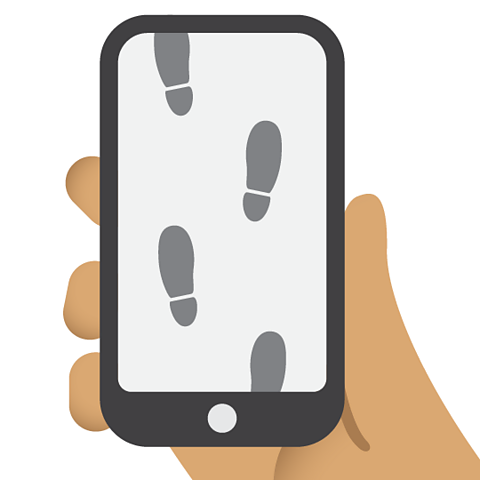
Remember your digital footprint?
It can be used to build a profile of who you are, including:
- your age
- your likes and dislikes
- the places you like to visit
- the activities and games you prefer to play
- the types of videos you watch the most
This profile is really useful for companies and other groups who might want to sell you something or create contentInformation, news, images, video etc that is published for an audience. for people just like you.

So is online content really free?
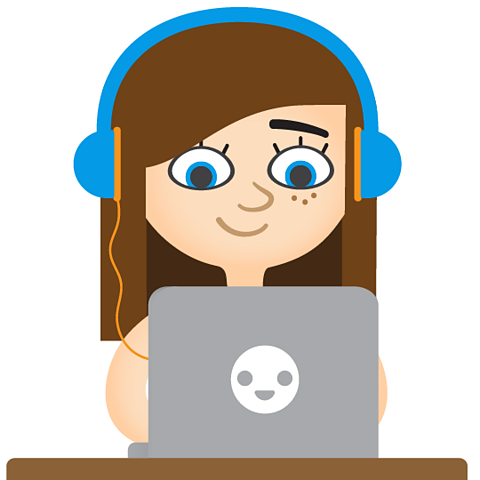
The internet offers us many incredible free app(Short for application) A program or tool that is used on a digital device. so we can enjoy: games, quizzes, videos and music, sending messages, taking and editing photos and shopping.
There are free social media tools to build a profile and communicate with others.
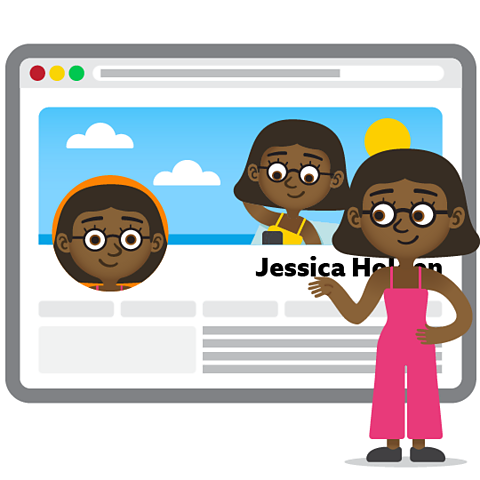
It is very expensive to design and build digital tools and platforms. So how do these companies give us access to all that stuff for free?
Social media companies collect all the data you give them when you are using their tools and sell it to companies that make adverts for other companies that sell products.
That's why you often see adverts for products that match something you searched for on a website, or from a photo you shared on social media.
It might seem as though your digital device has read your mind but in fact, it has 'read' your digital footprint!

Terms and conditions
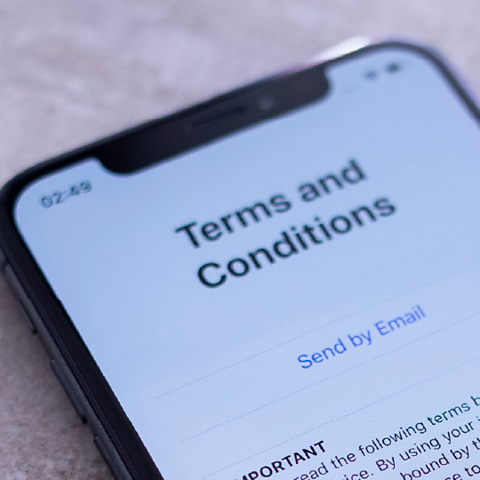
When we post or share something online, we might assume that we own that content. Well, it's not quite that simple.
Remember that long list of rules that you scrolled past when you signed up for an account? They are called terms and conditionsA list of rules and agreements accepted by a company and a user when setting up a new user account. (T&Cs for short).
They contain all the things you are agreeing to by setting up an account and using the platform. They cover important things like privacy and how your data and content can be used.
By agreeing to the terms and conditions you are giving consentWhen you agree to something usually in writing. (agreeing) for your data to be used in different ways. It can be tempting just to scroll past and click the agree or accept button, but it is worth spending some time looking at just what you are agreeing to.

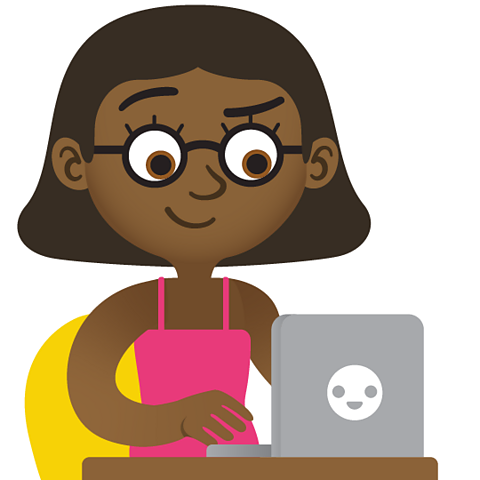
Things to look out for include:
- Data - some social media platforms and apps sell your information to other companies that can use that information about you to advertise products to you. It's your data, so don't just click agree.
- Photos - though most platforms will not own your pictures, when you post them, you are giving them consent to copy, store, edit and even share them with others! You can help stop this happening by setting your profile to private.
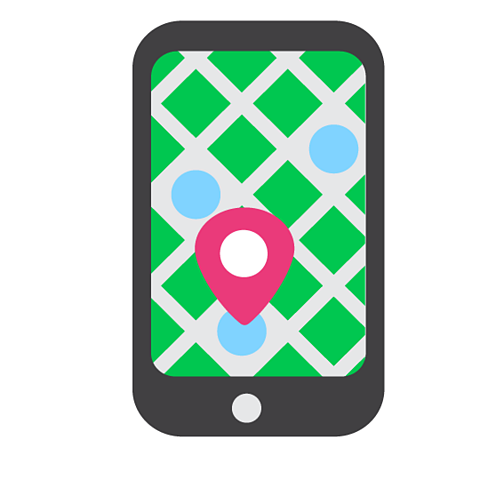
- Location - A lot of apps track where you go using location services. It's not safe for this type of personal data to be public so you should talk to a trusted adult to check your privacy settings.
Terms and conditions are often long and complicated and written in language that is difficult even for most adults to understand! If you get confused, ask a trusted adult to help.

Activities
Computing - Dance Mat Typing. gameComputing - Dance Mat Typing
Build and test your computing skills with different levels of touch type challenges

More on Digital literacy
Find out more by working through a topic
- count1 of 12
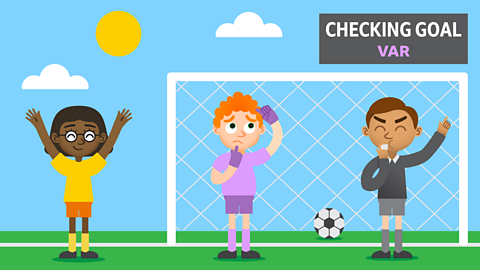
- count2 of 12
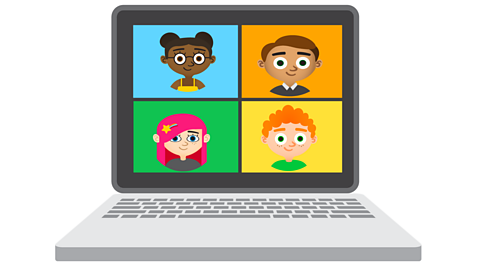
- count3 of 12
